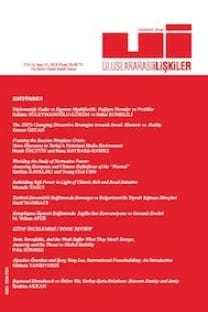Turkey and the Greater Eurasian Partnership: Opportunities and Challenges in “Amalgamated” Regionalism
Turkey and the Greater Eurasian Partnership: Opportunities and Challenges in “Amalgamated” Regionalism
The Greater Eurasian Partnership (GEP), introduced by Russia in 2015, is a regional integration project that aims to encompass the Eurasian Economic Union, the Belt and Road Initiative (BRI), the Shanghai Cooperation Organization (SCO), and the Association of Southeast Asian Nations. With this broad spectrum, it embodies various forms of regionalism, arranges a flexible institutional structure for non-/governmental actors without denting their other regional affiliations and provides commercial, developmental, and security opportunities. Such features could also facilitate the GEP’s ability to enhance Turkey’s recent efforts to deepen its relations with Asia. In return, Turkey could play several key roles for the GEP with its “dialogue partner” status in the SCO, “Middle Corridor” initiative for the BRI, and well-established links in Central Asia. Originating from potential mutual interests, this study applies a theoretical perspective underlining the commonalities of various regionalism categories to analyze the GEP’s amalgamated nature and highlight its significance for Turkey’s political-economic priorities without undermining its traditional ties with the West.
Keywords:
Russia, China, SCO, foreign policy geopolitics, BRI,
- ISSN: 1304-7310
- Başlangıç: 2004
- Yayıncı: Uluslararası İlişkiler Konseyi Derneği İktisadi İşletmesi
Sayıdaki Diğer Makaleler
The Rise of China and its Interplay with the Russian and Turkish Regimes
Relations with Russia in The Context of Turkey’s Policy in Constructing its ‘Strategic Autonomy’
Orhan GAFARLI, Julia ROKNIFARD
Worst of Friends, Best of Rivals: Agency vs Structure in Turkey-Russia Relations
Russia and Turkey: A Roller Coaster Relationship between Securitization and Cooperation
So Similar, Yet So Different: Russia and Turkey in the Western Balkans – The Case of Serbia
Walking a Tightrope: Turkey between the EU and Russia in the Crimea Crisis
